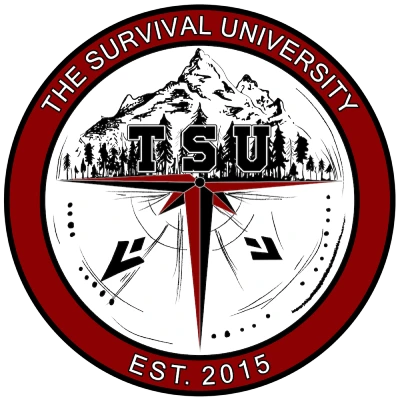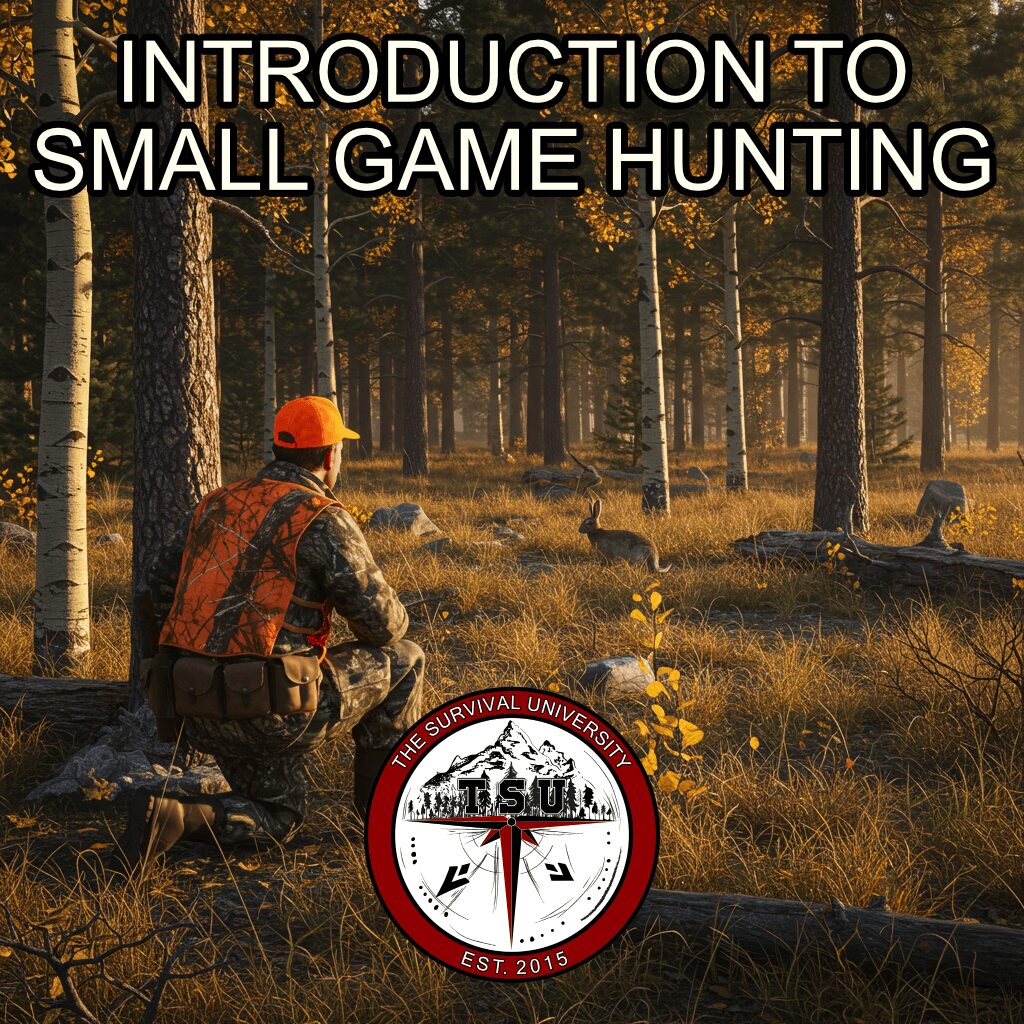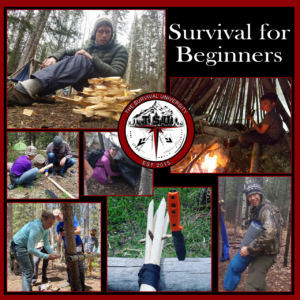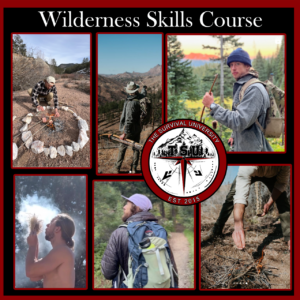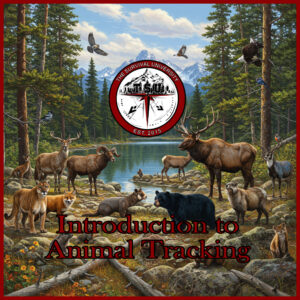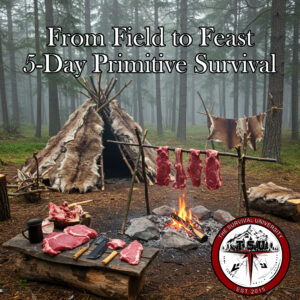Cart
Intro to Small Game Hunting
Ready to step into the world of small game hunting? This immersive course is designed for first-time hunters who want more than just theory. It’s a hands-on experience that takes you from planning and scouting all the way through field processing and cooking your harvest.
You’ll learn the laws and ethics of hunting, how to scout and track animals, and the skills needed to safely and successfully harvest wild game. Along the way, we’ll mix in practical wilderness skills so you gain confidence in both the hunt and the backcountry.
By the end of the course, you won’t just understand the hunt, you’ll know how to prepare, pursue, process, and put food on the table with respect for the land and the animal.
Preparing for the Hunt
This course establishes a solid foundation of knowledge and skills needed to get started on your first small game hunt. We focus on both modern techniques and primitive skills to create confidence for new hunters.
Instruction covers:
• The role of hunters, ethics, and history of conservation
• Rules, regulations, and applicable laws
• Navigating Department of Fish and Wildlife websites, brochures, and public resources
• Public vs. private land, guided vs. DIY hunting
• Applying for a license and obtaining hunter education
• E-scouting, maps, and identifying access points
• Planning your hunt, logistics, and expenses
• Physical fitness and preparation
• Essential gear for small game hunting
• Glassing and scouting techniques for locating game
Hunter Skill Set
• Understanding specific animal behavior and habitat
• Reading and interpreting animal signs and tracks
• Moving through animal habitat using noise and scent control.
• Applying different hunting approaches and strategies for small game
Method of Harvest (Weapons)
• Weapon safety and responsible handling for firearms and archery
• Proper care and maintenance of firearms
• Choosing the right firearm and ammunition for small game
• Archery basics, equipment styles, and shooting essentials
• Shooting scenarios and practicing in ideal and non-ideal positions
Successful Harvest of Game
• Tracking blood and reading animal sign to locate downed game
• Small game anatomy (rabbit, squirrel, and similar species)
• Field dressing and processing of small game in the field
• Caring for meat and packing out properly
• Butchering and preparing game for storage
• Cooking and preparing meals using wild game
Wilderness Living and Survival
• Choosing a campsite and shelter building, including emergency shelters
• Water sourcing, filtering, and storage
• Fire making with and without tools and proper safety
• Kit mentality and self-sufficiency in the field
• Situational awareness, including lightning, flash floods, and other hazards
• First aid basics and field response
• Emergency action planning and communication
• Basic navigation and orienting skills
Course Topics
• Navigating Game and Wildlife websites and brochures
• Planning your hunt
• Method of legal take
• Weapon safety
• Knowing your weapon
• E-scouting and physical scouting
• Setting camp
• Basic orienting
• Tracking and reading animal sign
• Learning animal behavior
• Hunting strategies and techniques
• Field processing small game
• Packing out and meat care
• Butchering and preparation for storage
• Cooking wild game
• Basic survival skills
• Communication and creating an emergency action plan
Course Outcome and Demonstrated Skills
• Understand legalities, ethics, and the importance of hunting
• Confidently navigate Parks and Wildlife resources
• Plan a hunt, meet requirements, and apply for a license
• Identify essential gear and physical readiness
• Use e-scouting and in-field scouting methods
• Track and read small game sign accurately
• Learn species-specific habitat and behavior
• Apply effective hunting strategies
• Handle weapons safely and confidently
• Track, recover, and field dress small game
• Care for, butcher, and preserve meat properly
• Cook wild game safely and efficiently
• Set up camp, make fire, and filter water
• Demonstrate basic primitive and survival skills
• Develop an emergency action and communication plan
